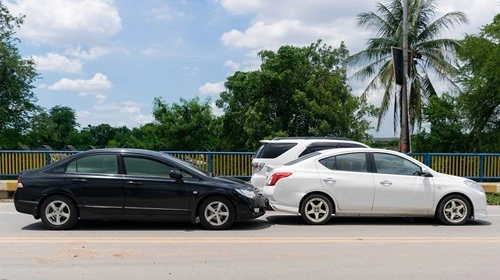Yes, brake checking is illegal in most circumstances in the United States. Brake checking occurs when a driver intentionally slams or taps their brakes to force the vehicle behind them to slow down abruptly. This practice is considered reckless driving and can lead to accidents, injuries, or even fatalities. It is viewed as both a dangerous and aggressive driving behavior, often falling under the umbrella of road rage.
Legal Implications of Brake Checking
Brake checking is treated as a traffic offense or a criminal act depending on the consequences and jurisdiction. Here’s how it is addressed under the law:
1. Reckless Driving
- In most states, brake checking is categorized as reckless or aggressive driving, which involves operating a vehicle in a manner that endangers others.
- Penalties for reckless driving may include fines, points on a driver’s license, and even jail time in severe cases.
2. Civil Liability
- If a brake check causes an accident, the driver who performed the maneuver can be held liable for damages, including medical expenses, vehicle repair costs, and emotional distress.
- In some cases, punitive damages may also be awarded if the act is deemed intentional or malicious.
3. Criminal Charges
- If a brake check leads to severe injury or death, the driver may face criminal charges such as vehicular assault, manslaughter, or even homicide.
4. Insurance Consequences
- Insurance companies typically determine fault in an accident. A driver proven to have brake-checked another vehicle could face increased premiums, denial of claims, or even policy cancellation.
Why Brake Checking Is Dangerous
1. Risk of Rear-End Collisions: Following drivers may not have sufficient time to react, leading to rear-end accidents.
2. Escalation of Road Rage: Brake checking often occurs in the context of road rage, escalating tensions and increasing the likelihood of further aggressive behavior.
3. Injury and Fatalities: Abrupt braking can cause injuries to passengers, particularly in high-speed scenarios, and can even lead to multi-car pileups.
Exceptions and Legal Defenses
While brake checking is almost universally viewed as illegal, there are rare circumstances where braking abruptly might not be deemed unlawful:
1. Sudden Hazard
- A driver who brakes suddenly to avoid hitting an animal, pedestrian, or object in the road may not be held liable if another vehicle rear-ends them.
2. Mechanical Issues
- If a vehicle’s brakes malfunction and cause abrupt deceleration, it may not be considered brake checking.
However, drivers claiming these defenses must provide evidence, such as dashcam footage, witness testimony, or mechanical reports.
Preventing Brake Checking Incidents
1. Avoid Tailgating: Following another vehicle too closely can provoke brake checking. Maintain a safe distance to avoid potential conflicts.
2. Stay Calm: If another driver is driving aggressively, avoid engaging in retaliatory behavior. Focus on de-escalation.
3. Use Dashcams: Dashcams can provide critical evidence in case of disputes over fault in an accident.
Penalties for Brake Checking
Penalties for brake checking vary by state but may include:
1. Fines: Fines for reckless driving can range from $100 to $1,000, depending on the severity and location of the offense.
2. License Points: Most states add points to a driver’s license for reckless driving, which can lead to license suspension if points accumulate.
3. Jail Time: Severe cases of reckless driving may result in misdemeanor or felony charges, carrying jail sentences of up to a year or more.
4. Increased Insurance Costs: Drivers found at fault for brake checking may see significant increases in their insurance premiums.
Related FAQs
Q1. What is brake checking?
Ans: Brake checking is when a driver intentionally brakes suddenly to force the vehicle behind them to slow down or stop abruptly.
Q2. Can I get in trouble for brake checking?
Ans: Yes, brake checking is typically considered reckless driving and can result in fines, license points, or even criminal charges.
Q3. Who is at fault in a brake-checking accident?
Ans: While rear-end collisions often default to the trailing driver’s fault, brake checking can shift liability to the driver who initiated the maneuver.
Q4. Is brake checking considered road rage?
Ans: Yes, brake checking is often viewed as an act of road rage, and it can escalate tensions between drivers.
Q5. How can I prove someone brake-checked me?
Ans: Dashcam footage, witness testimony, and accident reconstruction can help prove that another driver brake-checked you.
Conclusion
Brake checking is an illegal and dangerous driving behavior that poses significant risks to all road users. Drivers who engage in this practice can face serious legal and financial consequences, ranging from fines to criminal charges. Avoiding aggressive driving and maintaining safe distances are essential for reducing road rage incidents and ensuring safety on the roads.

